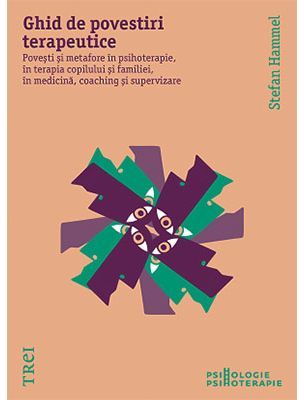Here is an overview of the seminars, workshops, lectures and congresses with Stefan Hammel planned in 2025.
The Kaiserslautern seminars will take place “hybrid”, i.e. with physical AND digital participants. Feel free to ask!
Occasional events may still be added! Participant feedback on the video seminars can be found here!
2025
March 04, 2025, 7-9 p.m.: Online, Zoom, free of charge: Online event “Hypnosystemic bag of tricks – everyday miracles in counseling, pastoral care and therapy” (every 1st Tuesday of the month)
March, 6.- 9, 2025: Kaiserslautern, hsb – Trainer seminar 3: TH – body language, multi-level communication, utilization
March, 14.- 15, 2025: Kaiserslautern, hsb – Hypnosystemic training, Therapeutic storytelling, Seminar 2: Writing good therapeutic stories – in 10 minutes & proven narrative structures
March, 27.- 30, 2025: Kassel, MEG Annual Conference 2025: Therapeutic greetings and other brief interventions in working with traumatized people (Info: www.meg-hypnose.de/veranstaltungen)
April, 1st, 2025, 7-9 pm: Online, Zoom, free of charge: Online event “Hypnosystemic bag of tricks – everyday miracles in counseling, pastoral care and therapy” (every 1st Tuesday of the month)
April, 11.- 12, 2025: Kaiserslautern, hsb – Hypnosystemic training, Therapeutic Storytelling, Seminar 3: The Island of Love – Maps and Landscapes in Individual, Couple and Family Therapy
May, 6th, 2025, 7-9 pm: Online, Zoom, free of charge: Online event “Hypnosystemic bag of tricks – everyday miracles in counseling, pastoral care and therapy” (every 1st Tuesday of the month)
May, 16.- 17, 2025: Kaiserslautern, hsb – Hypnosystemic training, Therapeutic Storytelling, Seminar 4: Therapeutic Greetings, Deals & Ordeals and other Brief Interventions
June, 3rd, 2025, 7-9 pm: Online, Zoom, free of charge: Online event “Hypnosystemic bag of tricks – everyday miracles in counseling, pastoral care and therapy” (every 1st Tuesday of the month)
June, 6.- 7, 2025: Kaiserslautern, hsb – Hypnosystemic training, Therapeutic Modeling, Seminar 1: Introduction to Therapeutic Modeling
June, 12-15, 2025: Kaiserslautern, hsb – Trainer seminar 4: TH – Thematic seminar: Addiction and eating disorders
July, 1st, 2025, 7-9 pm: Online, Zoom, free of charge: Online event “Hypnosystemic bag of tricks – everyday miracles in counseling, pastoral care and therapy” (every 1st Tuesday of the month)
July, 4.- 5, 2025: Kaiserslautern, hsb – Hypnosystemic training, Therapeutic Modeling, Seminar 2: Working with symbolic figures and fragmenting and transforming burdens
July, 24.- 25, 2025: Munich, SySt: The Sofa of Happiness – Therapeutic Modeling with Individuals and Couples
August, 5th, 2025, 7-9 pm: Online, Zoom, free of charge: Online event “Hypnosystemic bag of tricks – everyday miracles in counseling, pastoral care and therapy” (every 1st Tuesday of the month)
August, 29.- 30, 2025: Kaiserslautern, hsb – Hypnosystemic training, Therapeutic Modeling, Seminar 3: Transgenerational work and integration of real and fictitious persons from the client’s external world
September, 2nd, 2025, 7-9 pm: Online, Zoom, free of charge: Online event “Hypnosystemic bag of tricks – everyday miracles in counseling, pastoral care and therapy” (every 1st Tuesday of the month)
September, 4.- 7, 2025: Kaiserslautern, hsb – Trainer seminar 5: TE – Developing metaphors and stories
September, 19.- 20, 2025: Kaiserslautern, hsb – Hypnosystemic training, Therapeutic Modeling, Seminar 4: The Sofa of Happiness – Therapeutic Modeling in Couple and Family Therapy, with Teams and Groups
October, 7th, 2025, 7-9 pm: Online, Zoom, free of charge: Online event “Hypnosystemic bag of tricks – everyday miracles in counseling, pastoral care and therapy” (every 1st Tuesday of the month)
October, 10.- 12, 2025: Vallendar/ Rhine-Main area: 5th International Festival of Therapeutic Storytelling: Lecture and workshop, Therapeutic Greetings and other short interventions (Info: www.erzaehl-festival.de)
October, 17.- 18, 2025: Kaiserslautern, hsb – Hypnosystemic training, Therapeutic Hypnosis, Seminar 1: Trance Inductions and Trance Phenomena in Ericksonian Hypnotherapy
November, 4th, 2025, 7-9 pm: Online, Zoom, free of charge: Online event “Hypnosystemic bag of tricks – everyday miracles in counseling, pastoral care and therapy” (every 1st Tuesday of the month)
November, 6.-8, 2025, Balsthal / Switzerland, SMSH annual conference: Tinnitus – Why it comes when it comes, why it stays when it stays, why it goes when it goes. (Info: www.smsh.ch)
November, 9th, 2025, Wuppertal, Bernd Isert Systemic Conference: Introduction to Therapeutic Modeling: (Systemische Tagung Bernd Isert): Einführung in das Therapeutische Modellieren (Info: www.nlp-ausbildungsinstitut.de)
November, 14.- 15, 2025: Kaiserslautern, hsb – Hypnosystemic training, Therapeutic Hypnosis, Seminar 2: Therapy Structure – Anamnesis – Utilization: Transforming Problems into Solutions
December, 2nd, 2025, 7-9 pm: Online, Zoom, free of charge: Online event “Hypnosystemic bag of tricks – everyday miracles in counseling, pastoral care and therapy” (every 1st Tuesday of the month)
December, 4.- 7, 2025: Kaiserslautern, hsb – Trainer seminar 6: TE – Therapeutic maps and landscapes
December, 12.- 13, 2025: Kaiserslautern, hsb – Hypnosystemic training, Therapeutic hypnosis, Seminar 3: Body language, voice and verbal implications (multi-level communication)
Best regards from Kaiserslautern!
Stefan










